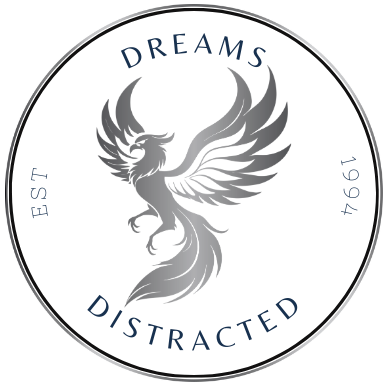Unleashing Your Potential: Conquering Goals with ADHD
Living with ADHD can present unique challenges when it comes to setting and achieving goals. The constant battle with distractions and maintaining focus can make even the simplest tasks feel overwhelming. But, what if there were strategies that could turn these challenges into strengths? In this blog post, we’ll explore practical techniques designed to help individuals with ADHD set realistic objectives, stay focused, and manage distractions effectively. Whether you’re aiming to improve productivity at work or accomplish personal milestones, this guide will empower you to navigate your journey to success confidently. Get ready to unlock your potential and achieve your goals, ADHD and all.
Understanding ADHD and Goal Achievement
ADHD, or Attention Deficit Hyperactivity Disorder, can present unique challenges when it comes to goal setting and achievement. Individuals with ADHD may face difficulties that impact their ability to reach their objectives. Let’s delve into the distinct aspects of understanding ADHD and how it intersects with goal attainment.
Challenges of Goal Setting with ADHD
Individuals with ADHD often encounter challenges that can impede their progress in achieving goals. Common difficulties include impulsivity, distractibility, and time management issues. Impulsivity can lead to making hasty decisions without fully considering the consequences, derailing progress towards long-term goals. Distractibility makes it hard to maintain focus on a specific task or goal, causing individuals to veer off course easily. Moreover, struggles with time management can result in poor planning and prioritization, affecting the ability to work steadily towards goals.
Strengths of Individuals with ADHD
Despite the challenges, individuals with ADHD also possess unique strengths that can be harnessed to enhance goal achievement. Traits like creativity allow for innovative problem-solving approaches and out-of-the-box thinking when overcoming obstacles on the goal path. The resilience of individuals with ADHD enables them to bounce back from setbacks and persevere in the face of challenges. Additionally, hyperfocus, a state where individuals with ADHD become deeply engrossed in a task of interest, can be a powerful tool for sustained productivity towards achieving specific goals.
In navigating the complexities of ADHD and goal achievement, recognizing both the challenges and strengths is essential. By understanding the interplay between these factors, individuals with ADHD can implement strategies that leverage their strengths to overcome obstacles and progress toward their goals effectively.
For further insights on ADHD and goal setting, you can refer to reputable sources like ADDitude Magazine and CHADD (Children and Adults with Attention-Deficit/Hyperactivity Disorder).
Effective Strategies for Goal Setting
Setting realistic and attainable goals is crucial for individuals with ADHD to navigate the path towards success. By breaking down goals into manageable steps, it becomes less overwhelming and more achievable. Setting realistic timelines ensures progress without feeling rushed, while aligning objectives with personal values can boost motivation significantly.
Setting Realistic and Attainable Goals
Breaking down overarching goals into smaller, actionable steps can make the journey seem less daunting. Individuals with ADHD can benefit from creating a structured timeline, setting specific deadlines for each task. By aligning these goals with personal values and aspirations, there is a deeper connection that can drive sustained motivation and focus.
Utilizing visual cues and reminders can be an effective strategy for individuals with ADHD to enhance their goal-setting process. Visual aids such as calendars, to-do lists, and sticky notes can serve as constant reminders of tasks and deadlines. These tools help individuals stay organized, maintain focus, and ensure they are on track towards their goals.
Utilizing Visual Cues and Reminders
Visual cues can act as anchors in a sea of distractions, providing a clear path to follow. For individuals with ADHD, colorful calendars, task boards, or digital reminders can serve as visual prompts to keep them engaged and on task. By incorporating these visual aids into their daily routines, individuals can maintain a sense of structure and direction.
Building accountability and support systems is essential for individuals with ADHD to stay motivated and on course towards their goals. Accountability partners, support groups, or coaches can provide the necessary encouragement and guidance needed during challenging times. These systems help individuals track their progress, celebrate achievements, and navigate setbacks effectively.
Building Accountability and Support Systems
Having someone to share successes and challenges with can make a significant difference in goal achievement. Accountability partners can help individuals stay committed to their objectives and offer a fresh perspective when faced with obstacles. Support groups create a sense of community and understanding, fostering a supportive environment for growth and progress.
By incorporating these strategies into their goal-setting approach, individuals with ADHD can enhance their focus, motivation, and overall success. Finding a balance between structure and flexibility, utilizing visual aids effectively, and building a support system tailored to their needs can empower individuals to overcome obstacles and thrive in their personal and professional pursuits.
Photo by RDNE Stock project
Overcoming Challenges and Staying Motivated
Setting and achieving goals with ADHD comes with its unique set of challenges. Here are some strategies to overcome setbacks, manage distractions, and stay motivated throughout the journey:
Managing Distractions and Impulsivity
Living with ADHD can make focusing on tasks difficult, but creating the right environment can help. Consider decluttering your workspace to minimize distractions. Use noise-canceling headphones or background music to stay focused. Time management techniques like the Pomodoro Technique can break work into manageable intervals, combating impulsivity.
Creating a Conducive Work Environment:
Creating a dedicated workspace with minimal distractions can significantly improve focus. Natural lighting, comfortable seating, and organized supplies can enhance productivity.
Implementing Time Management Techniques:
Use tools like timers or apps to break tasks into smaller, more achievable steps. Setting realistic deadlines and prioritizing tasks can help maintain focus and prevent impulsive behavior.
Practicing Mindfulness to Reduce Distractions:
Incorporating mindfulness practices such as deep breathing exercises or short meditation sessions can improve attention and reduce impulsivity.
 Photo by Barbara Olsen
Photo by Barbara Olsen
Celebrating Progress and Small Wins
Acknowledging and celebrating small victories is crucial for maintaining motivation. Here’s how you can build momentum and stay motivated by recognizing your progress:
Emphasizing Small Achievements:
Celebrate completing tasks, no matter how small. Keeping a journal to track your accomplishments can boost confidence and motivation.
Tracking Progress:
Visual tools like progress charts or checklists can help you see how far you’ve come. Reflecting on past successes can fuel determination to reach bigger goals.
Rewarding Yourself:
Treat yourself for achieving milestones. Rewards can be as simple as a break, a favorite snack, or engaging in a hobby you enjoy. Building positive reinforcement encourages continued effort.
For more tips on staying motivated with ADHD, check out these resources:
- ADHD and Motivation: 10 Productivity Hacks for Adults
- How Individuals With ADHD Can Increase Motivation
- 10 Tips and Strategies for Increasing Motivation in People with ADHD
- How to Stay Motivated in College with ADHD
- 9 Ways for Adults with ADHD to Get Motivated
Embracing Personal Growth and Resilience
Chasing your dreams with ADHD comes with its share of challenges, but by embracing personal growth and resilience, you can conquer obstacles and thrive. Embracing personal growth means being open to change, learning from setbacks, and continuously evolving into a better version of yourself.
Learning from Setbacks and Adjusting Goals
In the journey towards your goals, setbacks are not roadblocks but stepping stones to success. Each setback offers valuable lessons that can guide you towards the right path. By embracing failures as opportunities to learn and grow, you can adjust your strategies, refine your approach, and adapt your goals based on feedback and personal experiences. This resilience in the face of adversity is what propels you forward on your path to achievement.
Seeking Professional Support and Resources
Navigating the complexities of managing ADHD and pursuing your goals can be overwhelming at times. Seeking professional support from mental health professionals, ADHD coaches, or joining support groups can provide you with specialized tools, strategies, and resources tailored to your unique needs. These professionals can offer guidance, insights, and support that empower you to overcome challenges, stay focused, and reach your full potential.
 Photo by Akil Mazumder
Photo by Akil Mazumder
Conclusion
By understanding the unique challenges posed by ADHD and leveraging their strengths, individuals can set and achieve goals in a meaningful way. Embracing creativity, empathy, and exuberance allows for a personalized approach to planning and execution.
Tailored strategies such as setting clear, value-aligned goals, using visual cues, and maintaining accountability can make a significant difference.
Combining perseverance, a strong support system, and heightened self-awareness, success is not only possible but inevitable. With the right mindset and tools, navigating the journey with ADHD becomes a powerful testament to one’s resilience and capability.

